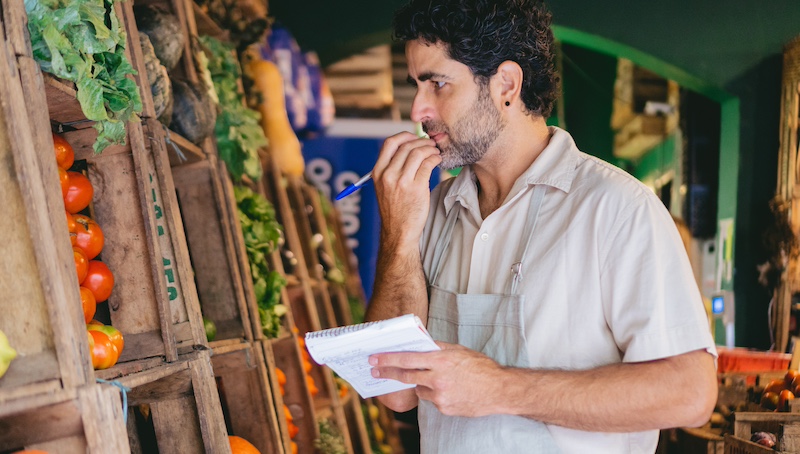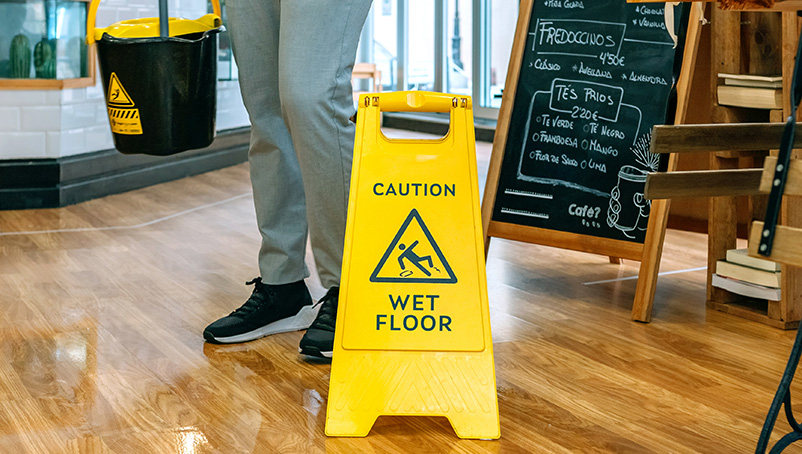What is property and casualty insurance (P&C insurance)?
Property and casualty (P&C) insurance is a type of coverage that helps protect your business from significant financial losses. It’s divided into two main parts: property insurance and casualty insurance.
- Property Insurance covers the physical assets your business owns. This includes your building, equipment, inventory and other tangible items.
- Casualty Insurance focuses on protecting your business from liability. This means it helps cover the costs if your business is found legally responsible for causing harm to others.
The property coverage protects tangible assets such as homes, personal belongings, equipment and cars. Property insurance will help cover a property’s replacement or actual cash value. Typical coverage scenarios include:
For example, if a fire damages your office or someone steals your inventory, property insurance can help cover the cost of repairs or replacements.
The casualty coverage refers to liability protection if you or your company is deemed legally responsible for damages to another’s property or for causing bodily injuries. These might include:
- A customer falls and injures themselves at your business.
- You damage a client’s art while working in their house.
- You badmouth a competitor, and they lose customers.
For instance, if a customer slips and falls in your store, casualty insurance can help cover their medical expenses and any legal fees that arise from the incident.
While they cover different losses, both property and casualty insurance are designed to protect policyholders from unexpected financial hardships.
By grouping property and casualty insurance together, insurance companies can offer more comprehensive protection to customers while streamlining their operations.
The 5 types of property and casualty insurance
P&C insurance is often the starting point for a customized insurance package and is broad protection against loss and liability. This kind of insurance is available for both personal and commercial policies.
Businesses typically carry these 5 common P&C coverages:
This covers you for losses that stem from injuries to non-employees, damage to other people’s personal property and more.
Workers’ comp provides insurance coverage for lost wages, medical expenses and more if you or an employee gets injured at work. It’s required in most states.
Also called errors and omissions insurance (E&O), professional liability coverage helps protect business owners from claims of making professional mistakes or negligence.
This insurance provides coverage for damage or vandalism to your equipment and inventory. It can also cover lost income, operating expenses and repairs to your building.
Most states require that your business-owned vehicles are insured for certain types of accidents with commercial car insurance.
Why small businesses need P&C insurance
P&C insurance is a critical tool for managing risk, staying compliant with the law, and keeping your business running smoothly after unexpected setbacks. Here are three reasons why this coverage is fundamental:
1. Risk management
Every business faces risks. P&C insurance helps cover the costs of repairs, replacements or legal fees, helping you avoid severe financial strain.
2. Legal requirements
Many businesses are legally required to carry certain types of insurance, such as general liability or workers’ compensation. Not having the right coverage can lead to fines, penalties or even the closure of your business.
3. usiness continuity
If a disaster forces you to close temporarily, business income insurance can help replace lost income, ensuring your business can survive the interruption and reopen without crippling losses.
4 common myths about P&C insurance
Many small business owners fall victim to P&C insurance myths that could leave them underinsured. Here are four common misconceptions:
1. Small businesses don’t need extensive coverage
Some believe that smaller businesses don’t need much insurance, especially if they don’t have many physical assets or are just starting out. However, even a small-scale operation can face significant risks, like lawsuits or property damage, making coverage essential.
2. General Liability insurance is enough
Some businesses need more than one insurance policy. While general liability covers certain risks, it doesn’t protect your business’s physical assets, workers or vehicles. Additional coverage like commercial property, workers’ compensation, or commercial auto insurance may be necessary, depending on your business operations.
3. Home-based businesses are covered by homeowners insurance
Many home-based business owners assume their homeowners insurance will cover business-related incidents. Unfortunately, most homeowners policies exclude business liabilities and assets, meaning you need separate commercial insurance.
4. Property and casualty insurance covers everything
P&C insurance has limits and exclusions. For example, certain natural disasters, like floods or earthquakes, may require specialized coverage through a rider. Always review your policy to ensure you’re covered for specific risks relevant to your business.









